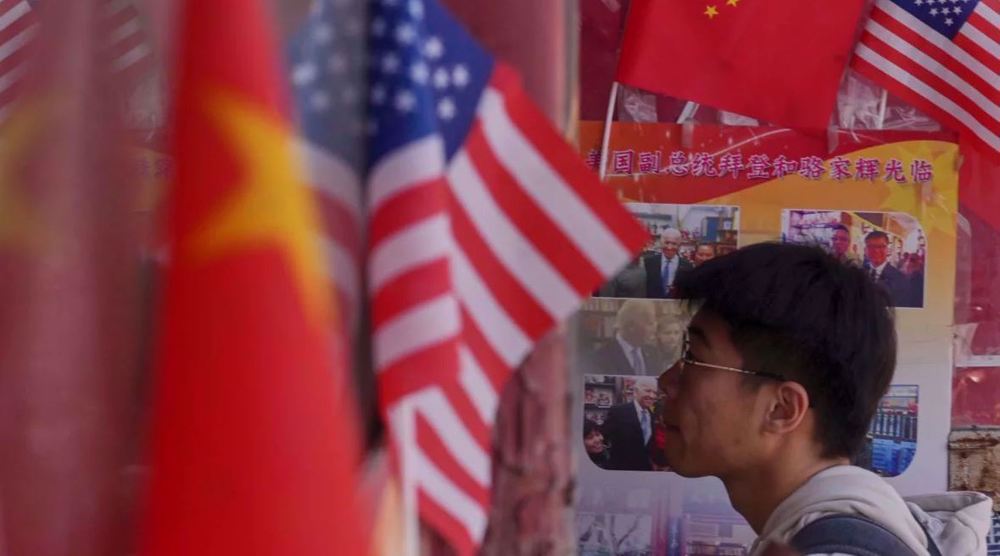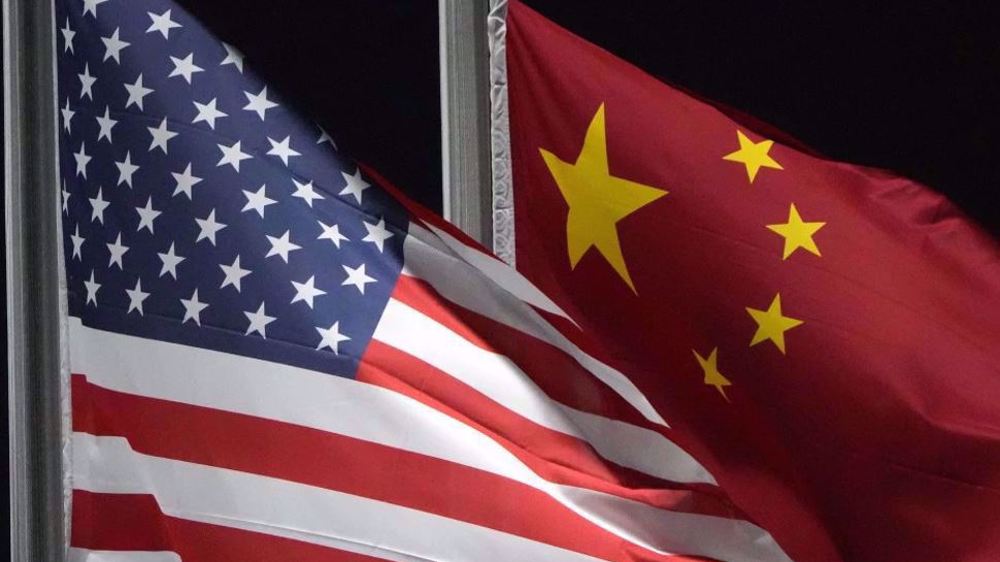Protest erupts in Hong Kong over proposed security law
Hong Kong is witnessing a renewal of protests over a newly-proposed security law as a lockdown imposed over the coronavirus outbreak gradually loosens.
Police on Sunday fired tear gas at protesters who had gathered for a march against the proposed bill between the districts of Wan Chai and Causeway Bay.
Hundreds of protesters were participating, ignoring earlier police warnings against assembly.
The proposed law was recently submitted for deliberation to the National People’s Congress (NPC) and it aims to boost security measures and safeguard national security in the Hong Kong Special Administrative Region (HKSAR) after violent protests rocked the region for months last year.
Anti-government protests began last year over a now-shelved extradition law and escalated in June. The protesters often heavily vandalized shops and public property and attacked citizens believed to be pro-government.
However, since the government imposed a ban on public meetings to curb the coronavirus outbreak, Hong Kong had been relatively calm.
Meanwhile, officials have assured Hong Kong investors that businesses will not be negatively affected under the law.
The Office of the Commissioner of the Ministry of Foreign Affairs of China in Hong Kong said in a statement that the city’s high degree of autonomy “will remain unchanged, and the interests of foreign investors in the city will continue to be protected in accordance with the law.”
It said the proposed law was aimed at creating the framework to stop the acts of secession, subversion, terrorism, external interference, and other acts undermining national security.
The statement stressed that the law would in no way harm the rights and freedoms enjoyed by Hong Kong residents, but enable them to better exercise their legitimate rights and enjoy freedoms in a safe environment.
It said some countries were interfering in China’s internal affairs by obstructing and sabotaging Beijing’s efforts to maintain sovereignty and security.
Hong Kong’s leader Carrie Lam also defended the proposed law, saying it was necessary to protect national security and punish “violent political elements.”
Another top Hong Kong official also assured that the region’s autonomy would remain and that mainland law enforcement would not operate in Hong Kong without approval from local authorities.
“I’m not worried about anybody being arrested by a police officer from the mainland and then taken back to China for investigation or punishment,” Maria Tam, a Hong Kong law advisor to the Chinese parliament, told AFP. “It is not, not, not going to happen.”
US taking relations with China ‘to brink of new Cold War’
Separately, Chinese Foreign Minister Wang Yi said on Sunday that Hong Kong was an internal affair and no foreign interference would be allowed.
“Aside from the devastation caused by the novel coronavirus, there is also a political virus spreading through the US,” Wang said. “This political virus is the use of every opportunity to attack and smear China. Some politicians completely disregard basic facts and have fabricated too many lies targeting China, and plotted too many conspiracies.”
Wang also said that the US was taking relations with China to the “brink of a new Cold War.”
“It has come to our attention that some political forces in the US are taking China-US relations hostage and pushing our two countries to the brink of a new Cold War,” China’s top diplomat said.
The US Senate recently passed a bill demanding that companies confirm they were not owned or controlled by foreign governments, which could prevent many Chinese companies from listing their shares on American exchanges.
During a daily briefing in Beijing on Friday, Chinese Foreign Ministry spokesperson Zhao Lijian also defended the proposed legislation and expressed opposition to any kind of foreign interference in China’s domestic affairs.
“Hong Kong is a special administrative region of China. The issue of implementing Hong Kong’s national security law is purely China’s domestic affair. No foreign country has the right to interfere,” Zhao said.
The Chinese government is firmly committed to protecting its sovereignty, security, and national interests, and to implementing the “one country, two systems” form of rule, he said.
On Saturday, dozens of Western figures from around the globe claimed the proposed law for Hong Kong would harm it.
In a joint statement organized by former Hong Kong governor Christopher Patten and former British foreign secretary Malcolm Rifkind, nearly two hundred figures claimed the proposed law was a “comprehensive assault on the city’s autonomy, rule of law and fundamental freedoms” and a “flagrant breach” of the Sino-British Joint Declaration that returned Hong Kong to China in 1997.
Hong Kong has been governed under the “one-country, two-system” model since the city — a former British colony — was returned to China in 1997.

Trump’s tariffs spark fears of price hikes, product shortages in US: Report

No talks on tariffs between China, US: Chinese Foreign Ministry

China deploys naval group in warning to US, Philippines over drills
VIDEO | Press TV's news headlines
VIDEO | India-Pakistan tensions escalate after deadly Kashmir tourist attack
Iran FM, IAEA chief discuss latest state of cooperation
US airstrike on Yemeni capital kills 8 people
VIDEO | Iran multilayered diplomacy
VIDEO | Press TV's news headlines
Iran more than halved its power grid losses to 10% in 16 years: Expert
Abbas names likely successor in move deemed ‘illegitimate, divisive’








 This makes it easy to access the Press TV website
This makes it easy to access the Press TV website